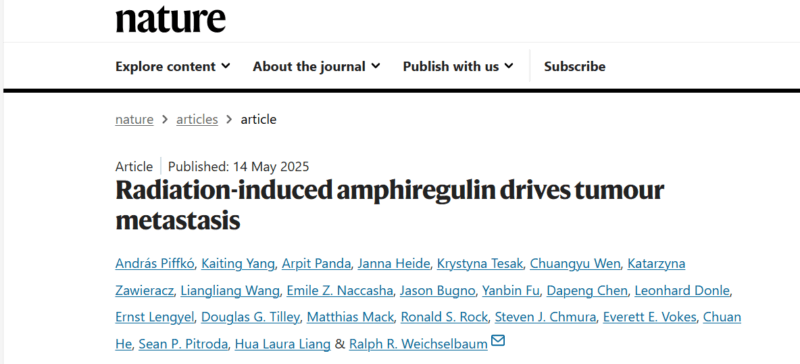George Kumar, Senior Director at AstraZeneca, shared on LinkedIn about recent paper published in Nature.
“Radiation-induced amphiregulin drives tumour metastasis.
Fascinating Nature study from the University of Chicago Medicine that uncovers what researchers have dubbed the badscopal effect.
- The ‘badscopal effect’, as coined by the UChicago team, describes a surprising phenomenon in which high doses of radiotherapy can actually stimulate growth in metastatic tumors that were not directly irradiated, instead of eliciting the more familiar abscopal effect where distant tumors shrink.
- This effect appears to be driven by an increased production of a protein called amphiregulin in tumors at the radiation site, which then promotes the growth of untreated metastatic foci.”
Title: Radiation-induced amphiregulin drives tumour metastasis
Authors: András Piffkó, Kaiting Yang, Arpit Panda, Janna Heide, Krystyna Tesak, Chuangyu Wen, Katarzyna Zawieracz, Liangliang Wang, Emile Z. Naccasha, Jason Bugno, Yanbin Fu, Dapeng Chen, Leonhard Donle, Ernst Lengyel, Douglas G. Tilley, Matthias Mack, Ronald S. Rock, Steven J. Chmura, Everett E. Vokes, Chuan He, Sean P. Pitroda, Hua Laura Liang, Ralph R. Weichselbaum

More posts featuring George Kumar.


